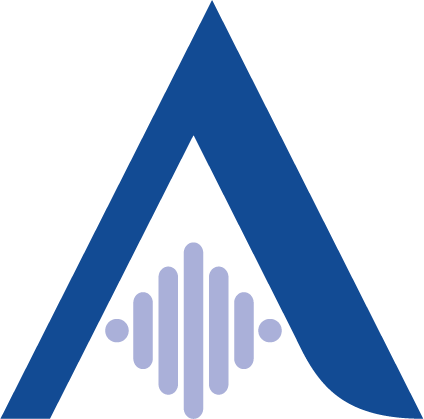
Digital technology changes educational paradigms, offers original methods and approaches to enhance the awareness of citizens, and creates new opportunities to transcend physical and temporal barriers.
For four years, AlmavivA has been heading “Educating City”, the experimental industrial research and development project that has introduced the use of the most advanced digital technologies to elaborate innovative teaching and learning models geared towards social inclusion.
The prototypes were experimented with the help of children, youths, teachers, educational coordinators, managers, IT professionals and the elderly. All phases of the learning process were involved. The first step concerned children’s first approach to the educational world. The project then invested schools of all types and at all levels, universities and companies. All citizens were involved, including the elderly, by instilling in them the idea of continuing education in time and space.
Co-funded by the Italian Ministry of Education, Universities and Research, in the context of the “Technologies for Smart Communities” cluster, the project involved RAI (Italian Public Broadcasting Company) and the CNR (Italian National Research Council) through the departments of Engineering, ICT and Technologies for Energy and Transport (DIITET) and Human and Social Sciences, Cultural Heritage (DSU). The partnership also includes Fondazione Reggio Children - Centro Loris Malaguzzi, the University of Modena and Reggio Emilia (Unimore), the University of Trento (UniTrento) and a temporary association of companies coordinated by NetResults.
The figures
54
months of activity
30
Web and mobile applications developed
150
technical and methodological documents produced
5
piattaforme realizzate tra cloud, e-learning e gaming
5
cloud, e-learning and gaming platforms created
151,000
hours of research
66,000
hours of experimental development
10,000
hours of training for teachers
9.6 milion €
total financing
4.9 milion €
of grants
3.7 milion €
of subsidized financing
The results
The project has led to the creation of a new platform, known as “Educating City,” through which innovative ICT services for training are provided. Its creation involved research in cloud computing and collaborative sourcing, Internet of Things (IoT), social networks, automatic 3D data, text and video analysis, big data analysis, natural and interactive interfaces, robotic, sensory and pervasive aids, automatic learning and search systems.
These scientific and industrial research approaches have led to important advancements for civil society:
new learning models that allow for developing collaborative sourcing and new e-learning methods
the possibility for schools of any type of benefiting from new teaching/learning processes thanks to the technologies developed to promote change
the possibility of creating, using and sharing contents of the new educational environment for students of any age, as well as professionals and the elderly who attend courses of any type

Below are some of the innovative applications developed by AlmavivA:
About me
A mobile application for Android and iOS platforms that allows users (students or citizens) to publish their own Educational Resume. Thanks to About Me, it is possible to draw up a personal Curriculum Studiorum, a certified document listing all the person’s qualifications acquired throughout his/her academic and professional career. The application can also be used to certify extracurricular activities. The user can create several public and private Educational Resumes and share them with other users (citizens or companies) of the platform.

Technological vegetable garden
The “Internet of Things (IoT)” application, for developing an environmental and eco-sustainable culture and teaching botany from a tender age. Through sensing devices that detect environmental data such as light, humidity and temperature of the soil, the platform communicates—for each plant in the vegetable garden—the state of health and, through an intuitive graphic interface, allows pre-school and primary school children to understand what actions are required to make each plant grow well without suffering. The solution also provides statistics describing past readings and the vegetable garden’s trend over time.

AstaLaVista
A mobile application for Android and iOS platforms used for “indoor” localizing in buildings, in which the users cannot resort to information provided by the GPS. AstaLaVista guides the student or teacher (and, more in general, the citizen) inside buildings (schools, museums, offices, etc.) through a dynamic map, locating them within the space and helping them to reach their destination (e.g. classroom). The solution contains an augmented reality interface that superimposes directional arrows and radars over the real scene.
“The project’s most important achievements came from the research focusing on social inclusion, such as didactic-technological systems for the cognitive empowerment of children with intellectual disabilities and autism; the creation of tools to favor learning and counter dropping-out during the early years of university; or the exploration of natural environments aided by digital technologies, such as the technological vegetable garden, experimented at preschools and primary schools, which enabled children to interact and move simultaneously within the technology and in nature. Educating City went even further, conceiving the idea of a technology aimed at favoring active aging.” (Alberto Tripi)
Several steps of the “Educating City” project are described in this book, including the exploration of environments aided by digital technologies, such as the technological vegetable garden for preschool and primary school children in Reggio Emilia, or the testing of the “classroom system” for transmitting and recording lessons at the Rosa Agazzi Municipal School in Pisa. Other applications include interactive journeys aided by ICT for understanding mathematics through problem solving in the schools of Turin, the application of tools to favor learning during the early years of university and old age at the University of Trento, or didactic-technological systems for children with dyslexia and autism.
Learn more about

Educating City
view site



